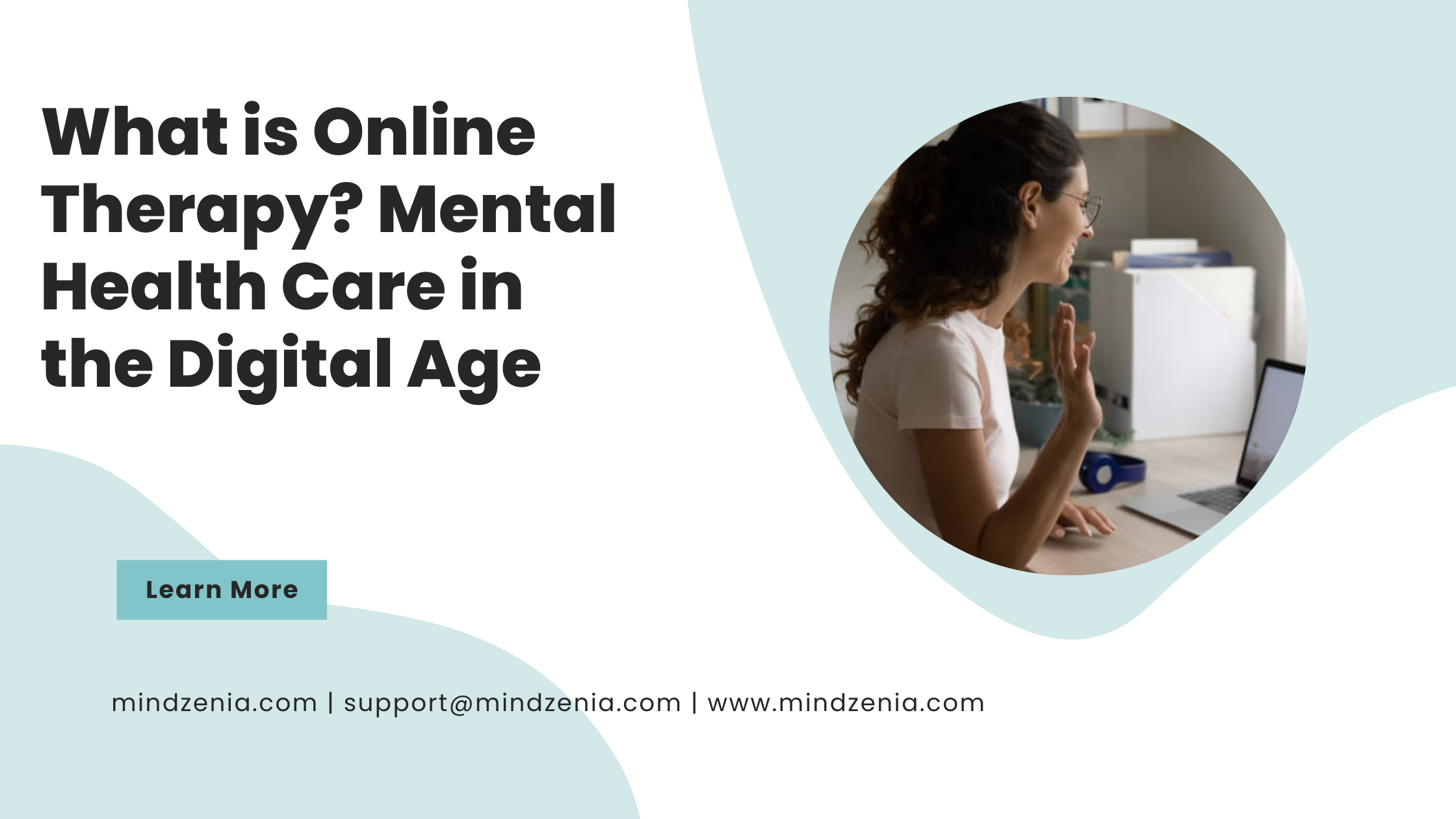What is Online Therapy? Mental Health Care in the Digital Age
When it comes to the need for mental health, the availability of care in the modern world has never been more crucial or accessible. Online Therapy, also called e-therapy, teletherapy, or virtual therapy, is gaining popularity as a viable method of obtaining counseling and psychological services. This is an unconventional model that utilizes technology in the provision of services, where clients are matched with licensed therapists. In this blog post, we will look into what online therapy services is, the benefits of online therapy, how it is done, and why online therapy is fast becoming a crucial part of mental health care.
Understanding Online Therapy
Online therapy can be defined as the provision of psychological services through the use of the internet. It comprises of the video calling, telephone calls and messaging such as email and texting. This flexibility enables those who require professional mental health services to do so from the comfort of their homes or any other private space with access to the internet.
How Online Therapy Works
- Choosing a Platform: Several Online Therapy Services providers exist, including Better Help, Talkspace, and other therapists who shifted from in-person sessions to virtual. It will also be different in terms of functionality, cost and the availability of the therapist.
- Signing Up and Matching: Depending on the selected platform, clients usually register and provide some basic information about themselves through a questionnaire. This questionnaire assists in assigning them a therapist that best suits their needs and tastes.
- Scheduling Sessions: After clients are matched with therapists, they can attend sessions during favorable hours. The sessions can be done through video, or through a phone or a chat, depending on the client and the service capabilities.
- Engaging in Therapy: As in a typical face-to-face therapy, the client and the therapist freely converse throughout the sessions. Psychotherapists employ different therapeutic interventions depending on the case scenario of the patient.
- Ongoing Support: With the methods used by online therapy platforms, clients can reach out to their therapists at any time in between sessions. This form of communication can be especially effective for reporting on the state of progress and addressing emergent issues.
Benefits of Online Therapy
- Accessibility: Online therapy allows people with different challenges such as geographical location, disability or any form of disability in transportation to access mental health care. It also gives a reasonable solution for individuals living in the rural or regions which have inadequate health facilities.
- Convenience: Flexibility in terms of time and location of sessions is another feature that cannot be underrated. This is particularly useful for working individuals, parents with children, or simply those who are more comfortable receiving their services at home.
- Comfort and Privacy: It is also difficult for people to reveal a lot about their problems in the presence of others as compared to their home environment. Online therapy will ensure that patients are able to get the care they need without exposure to the stigma associated with such treatments.
- Variety of Options: It has been established that clients are in a position to select their preferred therapist and therapy type thus improving the chances of finding a suitable therapist. Self-experimentation can also be done because the variety of methods enable one to select the most effective one.
- Cost-Effectiveness: For some people, online therapy might be cheaper than conventional face-to-face sessions. Some service providers structure their pricing based on a subscription-based model, which is usually less costly. Also, no travel expenses are incurred, and no days off work are needed, which saves substantial amounts of money.
Challenges of Online Therapy
- Technology Issues: Technical issues like network connectivity issues or software malfunctions can cause session interruption and interfere with the quality of interactions.
- Lack of Non-Verbal Cues: The use of text-based therapy eliminates nonverbal components such as gestures and facial expressions which are critical in the assessment of the emotions and responses of the clients by the therapist.
- Privacy Concerns: Maintaining the privacy and security of messages posted on the Internet is very important. It means that clients have to work through secure media and ensure the confidentiality of their data.
Why Online Therapy is Essential
As the need for therapy continues to rise and with technological progress being what it is today, online therapy has become the norm. It offers convenient, available, and efficient assistance to people who need it. This is especially true for situations like the COVID-19 pandemic where group and face-to-face sessions cannot occur but online therapy remains a crucial resource.
Conclusion
Telemental health is an effective model for delivering mental health services, as it has many advantages and brings psychological assistance closer than it has ever been. If it is stress, anxiety, depression, or other mental health concerns, online therapy is a good solution for people who need help. It can surely be claimed that online therapy will remain a vital part of mental health care in the future as technology advances.

